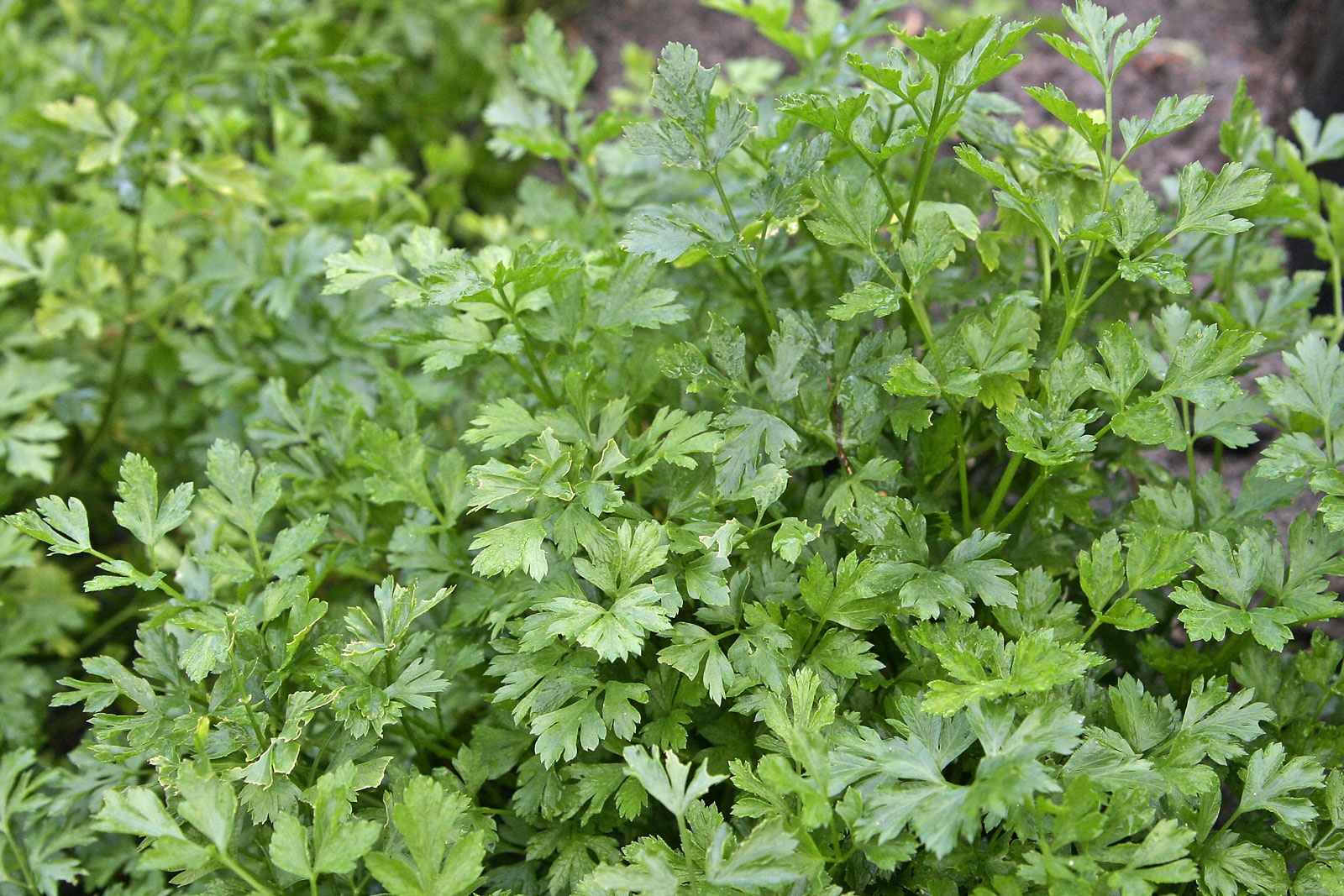Parsley is a versatile herb that offers numerous benefits and uses. Here are some of the key benefits and common applications of parsley: 1. Nutritional Value: Parsley is rich in vitamins A, C, and K, as well as minerals like iron and potassium. It also contains antioxidants and flavonoids that have potential health benefits. 2. Freshens Breath: Parsley's high chlorophyll content helps combat bad breath. Chewing a sprig of parsley after a meal can freshen your breath and act as a natural breath freshener. 3. Anti-Inflammatory Properties: The volatile oils present in parsley, such as myristicin and eugenol, have anti-inflammatory properties. Consuming parsley regularly may help reduce inflammation in the body. 4. Digestive Health: Parsley contains compounds that can support healthy digestion. It may help alleviate bloating, gas, and indigestion. Additionally, parsley is a natural diuretic, promoting healthy kidney function. 5. Antioxidant Benefits: Parsley is a good source of antioxidants, including vitamin C and flavonoids. Antioxidants help protect cells from damage caused by free radicals, thereby reducing the risk of chronic diseases. 6. Culinary Uses: Parsley is widely used in cooking and adds a fresh, herbaceous flavour to a variety of dishes. It is a common ingredient in salads, soups, stews, sauces, and marinades. Flat-leaf parsley is preferred for its stronger flavour, while curly parsley is often used as a garnish. 7. Decorative Garnish: Parsley's vibrant green leaves make it an attractive garnish for plating and adding visual appeal to dishes. 8. Herbal Tea: Parsley leaves can be used to make a refreshing herbal tea. It is believed to have diuretic properties and may aid in water retention and bloating. 9. Skin Care: Parsley extracts are found in various skincare products due to their potential benefits for the skin. It is believed to have a soothing effect, reduce redness, and provide a natural glow. 10. Herbal Remedies: Parsley has been used in traditional medicine for various purposes, including supporting kidney health, easing menstrual discomfort, and boosting overall immunity. However, it's important to consult a healthcare professional before using parsley for any specific medicinal purposes. It's worth noting that while parsley is generally safe to consume in culinary amounts, large quantities or concentrated supplements may have potential side effects or interact with certain medications. If you have any concerns or specific health conditions, it's advisable to consult a healthcare professional before making significant changes to your diet or using parsley for medicinal purposes.


